
It is Illegal Live in an RV on Your Property in These Us States
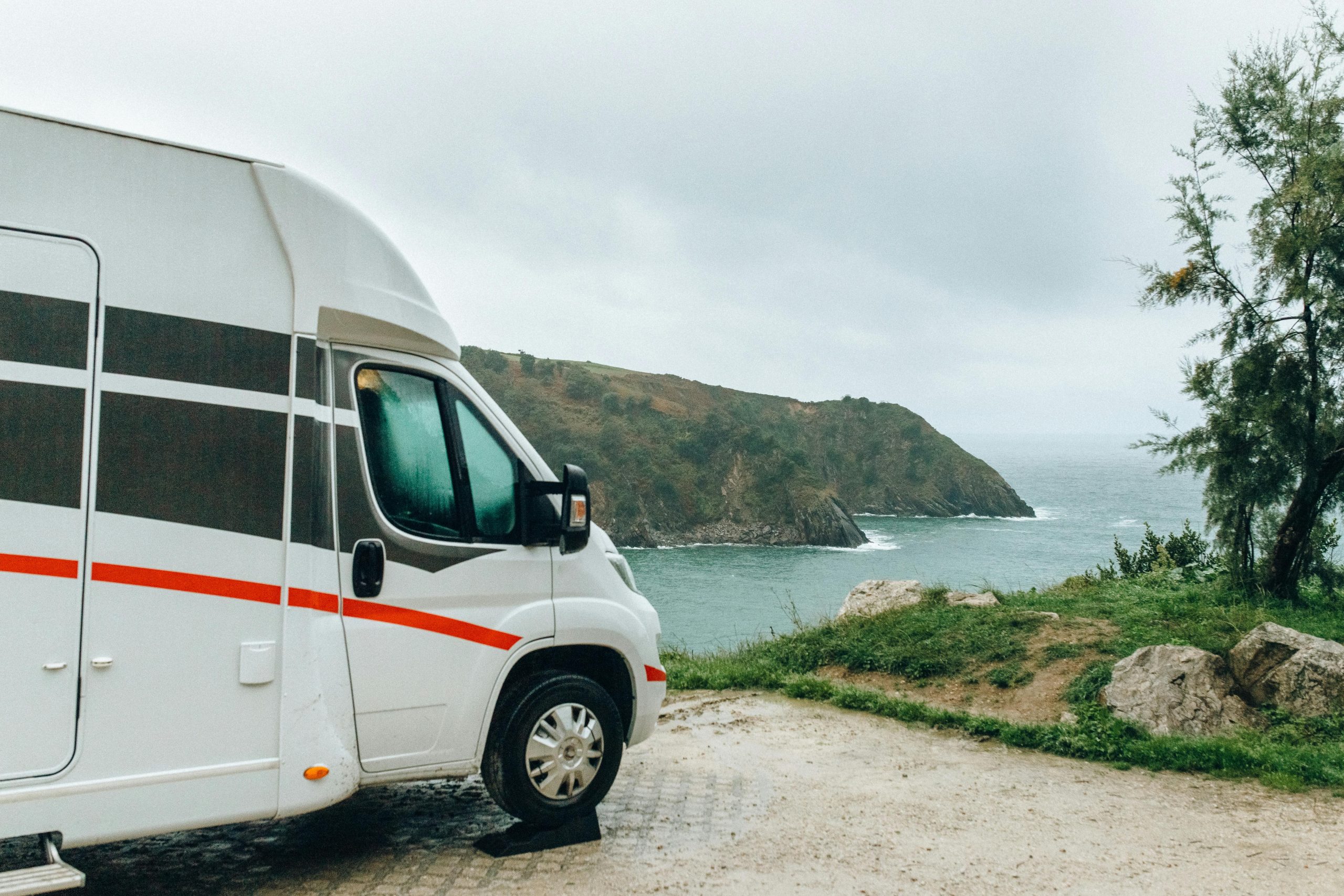
The Legal Gray Area of RV Living: Why Owning Land Isn’t Always Enough
Imagine owning a serene piece of countryside, backing your RV into place, and waking up each morning to the soothing sounds of birdsong and sweeping mountain views—free of mortgage, landlords, or restrictions. It sounds like the ultimate American dream: minimalist, self-reliant, and deeply connected to nature. But for many, this vision quickly collides with legal realities. In parts of the U.S., that dream can come with fines, eviction notices, or forced relocations—simply for living full-time in your RV, even on land you legally own.
As housing prices soar and traditional homeownership becomes increasingly inaccessible, a growing number of Americans are redefining what “home” looks like. For millions, RVs offer more than a way to travel—they’re a full-time living solution and a form of protest against a housing system that often seems rigged against average people.
Why More Americans Are Choosing the RV Life
The decision to live in an RV is rarely impulsive. It’s often born of financial necessity, a desire for greater freedom, or a philosophical shift toward simpler living. According to the RV Industry Association, more than 11 million U.S. households now own an RV—a number that has climbed sharply in recent years. Increasingly, these vehicles are being used as primary residences, not just vacation escapes.
This shift isn’t just about wanderlust or picturesque Instagram posts. It’s about survival and sustainability. With the median home price in the U.S. now exceeding $400,000 and rental costs climbing just as steeply, many individuals—especially millennials and Gen Z—are opting for mobility over mortgages.
“I was spending nearly 60% of my income on rent,” says Tara Liu, a 29-year-old freelance designer who lives full-time in her RV. “Now, my home moves with me, and I’ve never felt more free—or financially secure.”
It’s not just young adults embracing the lifestyle. Retirees are also downsizing into RVs, using them to chase sunshine, avoid high property taxes, and eliminate the burdens of home maintenance.
Beyond finances, there’s also a cultural shift at play. Many RV dwellers are drawn to the lifestyle for environmental or philosophical reasons. Minimalism, intentional living, and the rejection of consumerism are common themes. For them, RV life represents not just an escape, but a conscious return to what matters most.
From remote-working professionals parked beside national forests to families looking for affordable alternatives to homeownership, RV living is fast becoming a mainstream movement. But as the community grows, so too do the legal roadblocks.
Why It’s Often Illegal to Live in Your RV—Even on Your Own Land
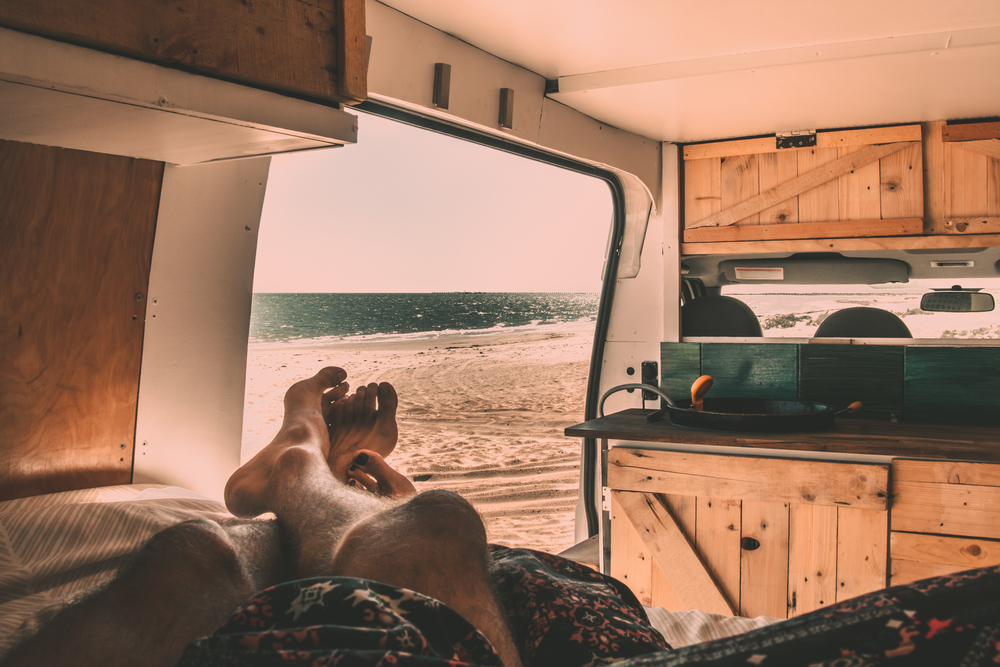
At first glance, it seems like common sense: if you own the RV and the land it’s parked on, why shouldn’t you be allowed to live there? Unfortunately, zoning and land-use laws across much of the U.S. disagree.
The biggest hurdle is classification. In most municipalities, RVs are legally viewed as vehicles—not permanent dwellings. That means they often don’t meet the zoning or building code requirements for residential structures.
Zoning restrictions determine how land can be used: residential, agricultural, industrial, or commercial. Many local codes don’t classify RVs as acceptable residential structures. They may require that all homes have permanent foundations, specific square footage, connections to municipal water and sewage systems, and compliance with fire safety and insulation standards. Even fully equipped RVs with solar panels, composting toilets, and advanced off-grid systems often fall short of these legal benchmarks.
There are also health and safety codes that define what makes a dwelling “habitable.” These rules typically require hookups to approved sanitation and water sources, which many RV setups bypass in favor of off-grid living.
Another sticking point is taxation. Traditional homes generate consistent property tax revenue. A sudden influx of RV-based households could disrupt funding for local services like schools, fire departments, and road maintenance—prompting some municipalities to push back with stricter enforcement.
Lastly, aesthetic concerns play a role. Neighborhood associations (HOAs) and city planners often oppose visible RVs due to perceived impacts on property values or visual harmony. Even in rural areas, long-term RV living may be frowned upon or outright banned if the community sees it as “unsightly” or temporary.
States Where Living Full-Time in an RV on Your Own Land Is Prohibited
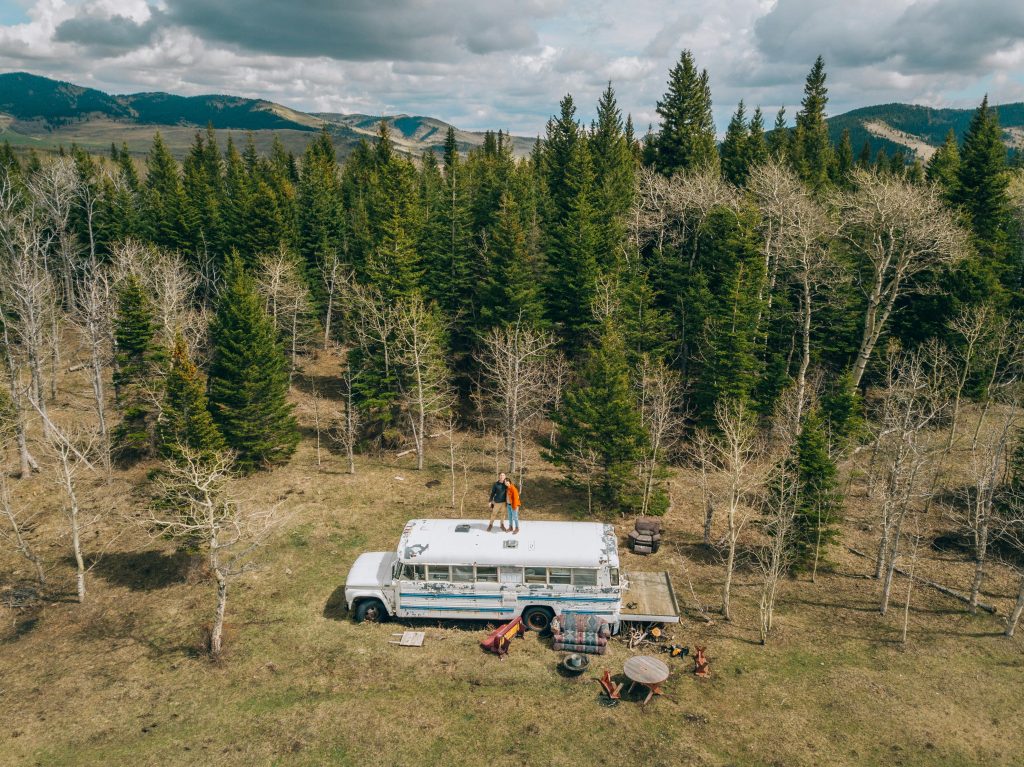
While federal law doesn’t outright ban full-time RV living, many states and counties have imposed restrictive rules that make it effectively impossible to do so legally. Here are some of the most RV-unfriendly states as of 2025:
-
Delaware: RVs are not considered legal residences. Full-time living is prohibited even on private land, and violations can result in steep fines or forced removal.
-
Hawaii: With some of the strictest zoning laws in the nation, Hawaii bans full-time RV residency outside designated campgrounds—many of which have their own occupancy limits.
-
Indiana: Laws prevent overnight RV stays on private property unless specifically zoned for it. Even seasonal parks often close during winter months.
-
Michigan: RVs are not classified as dwellings. Counties typically allow only short-term use, and full-time residency—even in rural zones—is restricted.
-
Georgia: While rural areas might offer some leniency, most counties prohibit living in an RV full-time unless it’s in a licensed campground.
-
Nevada: Particularly in urban areas, full-time RV use is heavily regulated or banned outright. Temporary permits may be granted during construction projects.
-
New Hampshire: Most municipalities enforce zoning rules that prevent permanent RV habitation, with only narrow exceptions for construction-related stays.
-
Kentucky: Local governments treat RVs as temporary shelters, not homes. Suburban and urban areas are especially strict in enforcing occupancy bans.
Violating these rules can lead to hefty fines, denial of utility access, or even legal eviction—even if the land belongs to you.
States That Allow Full-Time RV Living—With Strings Attached

Not all states take a hardline stance. In fact, a growing number are adopting more flexible rules, particularly in rural areas. However, even in these places, you’ll likely need to meet specific requirements.
RV-Friendly States (with Conditions):
-
Texas: One of the most welcoming states for RVers. Living in an RV on your own land is typically allowed, provided the vehicle is registered and zoned appropriately. Septic and utility requirements vary by county.
-
Florida: A popular choice for snowbirds, Florida allows RV living with adherence to local zoning laws. In some areas, occupancy may be capped at 180 days per year.
-
Arizona: Known for lenient regulations, especially in rural areas. However, larger cities often impose stricter codes.
-
Oregon: Thanks to progressive housing laws, Oregon permits RV living in many counties, especially under new rules supporting alternative housing.
-
Colorado: Particularly in unincorporated or agricultural zones, RV living is more accepted. Urban areas tend to impose tighter restrictions.
Common Conditions Across Permissive States:
-
Zoning Compatibility: Land must be zoned for alternative or mixed-use residential living.
-
Utility Compliance: Approved sanitation systems (often a certified septic tank) and access to potable water are typically required.
-
Permitting: Temporary or long-term permits may be required, especially during home construction or in hardship cases.
-
Visual Restrictions: RVs often need to be hidden from street view or enclosed in structures like pole barns.
-
Proof of Residency: Some states require address registration or domicile confirmation for tax and legal purposes.
Legal Loopholes and Creative Workarounds
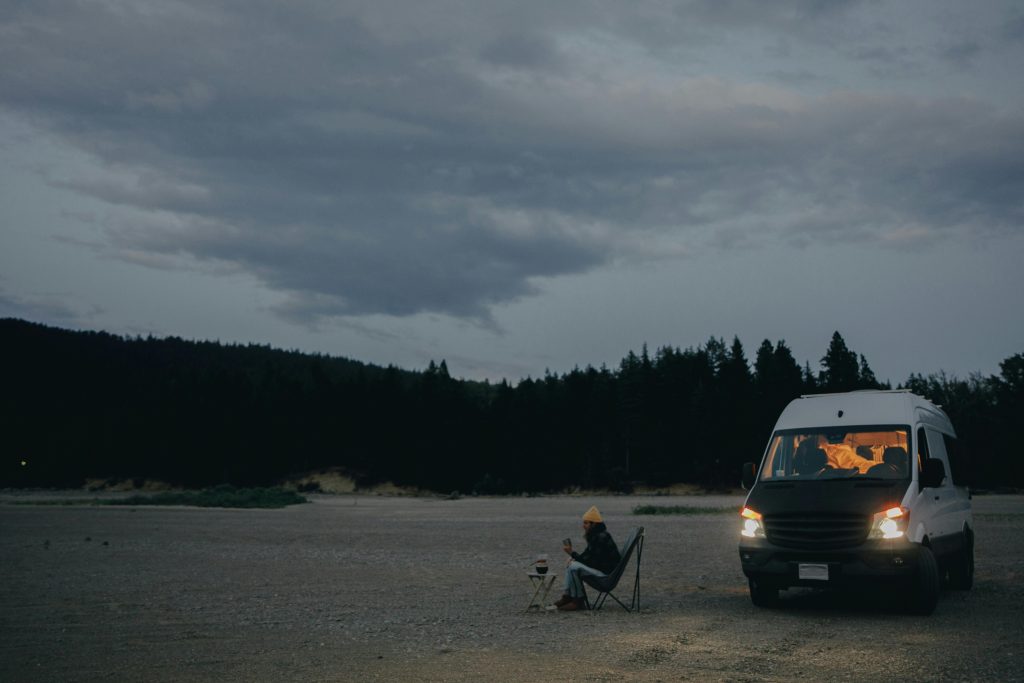
For those committed to RV life, navigating local restrictions often means getting creative:
-
“Shuffling” Locations: Some RVers move from one location to another every 14–30 days to stay within legal occupancy limits.
-
Semi-Permanent Shelters: Building a pole barn or shed to house the RV can help meet aesthetic and structural requirements.
-
Accessory Dwelling Units (ADUs): In areas where ADUs are allowed, RVs can sometimes be registered as temporary secondary dwellings.
-
Private RV Co-ops: Groups are forming land co-ops and RV parks registered as commercial properties, which can bypass some zoning restrictions.
-
Permitted Exceptions: Some states offer permits for long-term RV habitation under specific conditions (e.g., home construction, medical hardship).
-
Living on a Friend’s Land: In rural areas, living on someone else's land—especially with informal arrangements—may be tolerated if utilities and sanitation are addressed.
What to Do Before Committing to Full-Time RV Life
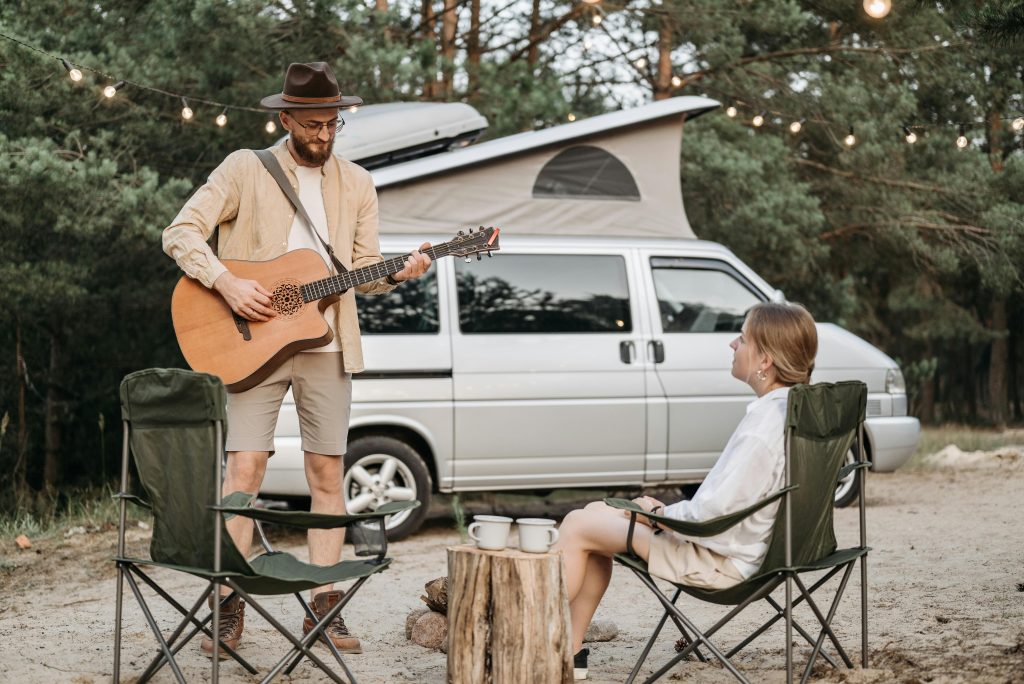
Before you go all in, make sure to:
-
Contact your local zoning board for exact laws in your county or municipality.
-
Ask about permits, setbacks, and infrastructure requirements.
-
Verify health and sanitation regulations related to septic, water, and waste disposal.
-
Check for HOA rules if your land is part of a private community.
-
Consider RV-friendly states for legal domicile and mail forwarding services (Texas, Florida, South Dakota).
-
Join RV forums and networks to stay current on shifting laws and advocacy efforts.
The Road Ahead: Freedom, Redefined
Living in an RV is more than a lifestyle—it’s a movement. It’s a declaration of independence in a country where the cost of traditional housing has left millions behind. But true freedom on the open road comes with its own kind of paperwork: zoning compliance, utility permits, and a deep understanding of local law.
The good news? Attitudes are slowly changing. As more Americans demand affordable, flexible, and sustainable housing options, some local governments are revisiting outdated codes and opening space for alternative dwellings.
So if the RV life calls to you, answer it—but do your homework first. With careful planning, legal foresight, and a little creativity, that dream of a mortgage-free life under open skies might just become your reality.
News in the same category


I Was Shamed for Being a Single Mom at My Sister’s Baby Shower — Then My 9-Year-Old Son Silenced the Room with a Letter

9-Year-Old Boy Whispered “Daddy, I’m so tired!” and Didn’t Wake Up Again

What Is the Shark Fin on Cars?

Why Does My Heart Hurt? Common Reasons For Heart or Chest Pain

Scientists Discover New Blood Type Only Found In One Woman On Earth Today
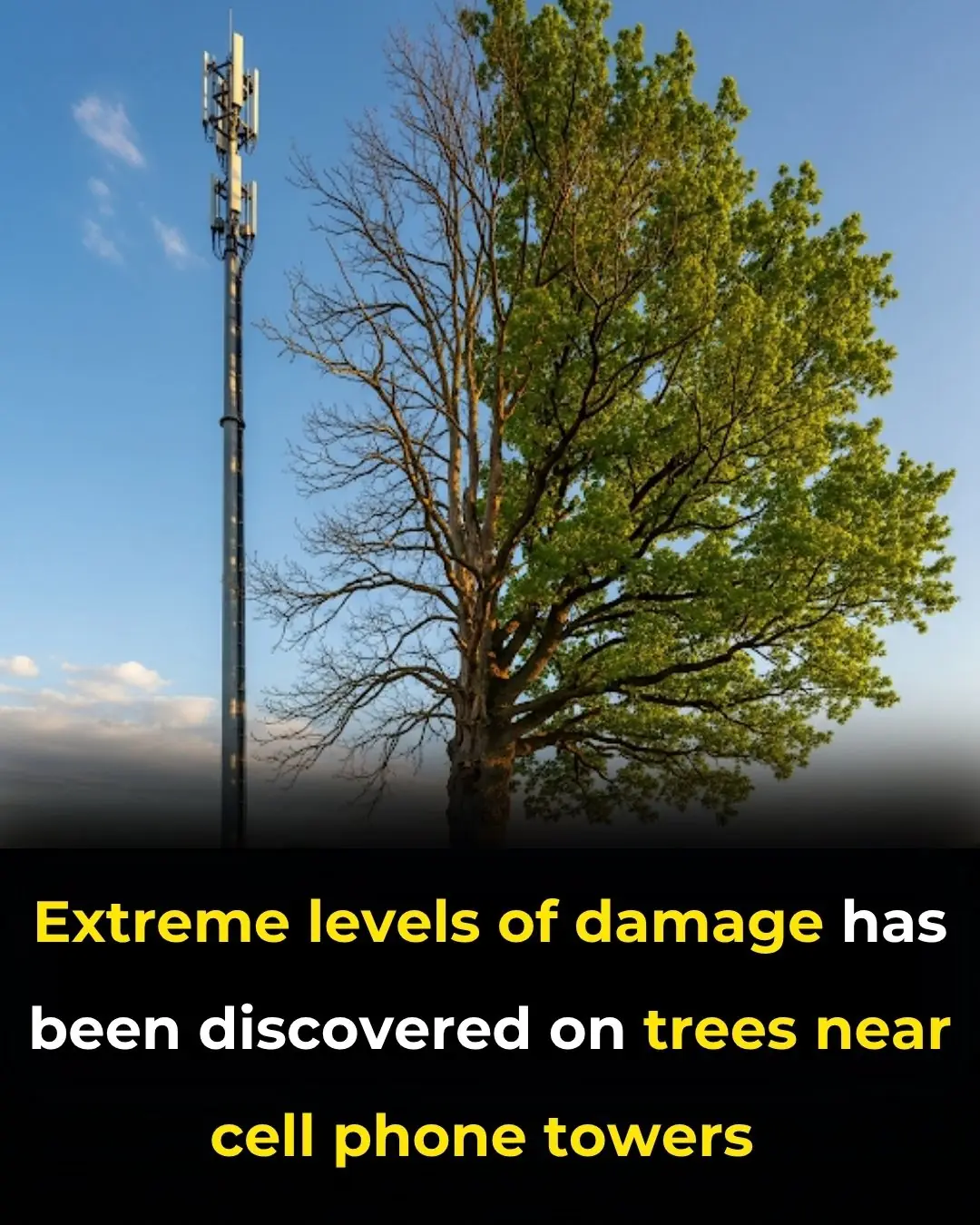
Extreme levels of damage has been discovered on trees near cell phone towers

If You Notice a Purple Butterfly Sticker by a Newborn’s Bed—Here’s the Silent Tragedy Behind It
It's not just a decorative element. It's a symbol.

If You See A Woman Wearing A Wedding Ring On Her Pinky Finger Here’s What It Means
If you see a woman wearing a wedding ring or statement ring on her pinky, know that there’s likely a story behind it.

Here Are 5 Reasons Why Some Men Prefer Slim Women
Slimness might be appealing to some men for reasons ranging from health to aesthetics, but personality, kindness, intelligence, and emotional compatibility often matter far more in the long run.

Doctors Explain The Chilling Sound A Person Makes That Means They Have Less Than 24 Hours To Live
Understanding what the sound signifies — and knowing that the individual is not suffering — can provide comfort in an otherwise heartbreaking moment.

“I Di3d for 6 Minutes and Saw the Afterlife — What I Witnessed Still Haunts Me”
A guy has described the eerie sights he says he seen in paradise after he ‘died’ for six minutes as a child.

Scientists stunned after discovering Earth's 'heartbeat' that sounds every 26 seconds

Researchers Discover Crows Hold ‘Funerals’ To Mourn Their De@d

The First-Ever Recording Of A Person’s Last Moments Has Made Our Last Thoughts Visible

Test Your Color Vision: Can You Read These Words?

Should You Turn Off WiFi and Bluetooth at Night?

Scientists reveal the creepy reason parasites crawl on your face while you sleep
It may not be comforting to know that you share your face with a small army of eight-legged mites.

15 Sh0cking Predictions Bill Gates Made 25 Years Ago — Now They’re All Reality
His 15 predictions weren’t just accurate; they reshaped how we live, work, and connect.

Woman Claps Back at Older Generation for Judging Her Tattooed Body
News Post

9 Chilling Stories of Third Man Syndrome: When an Unseen Presence Aided Survival in Disasters

Bruising Easily? Itchy Skin? 5 Hidden Signs of Liver Damage You Might Be Overlooking

I Was Shamed for Being a Single Mom at My Sister’s Baby Shower — Then My 9-Year-Old Son Silenced the Room with a Letter

9-Year-Old Boy Whispered “Daddy, I’m so tired!” and Didn’t Wake Up Again

Proven Health Benefits of Turmeric and Honey (Golden Honey) – Evidence Based

The 20 Most Potent Cancer-Fighting Foods Hiding in Plain Sight

You’re Drinking Water Every Day but This One Mistake Is Costing You

If Your Partner’s Breath Is Brutal, Just Make This One-Ingredient Fix This Morning

People are just realizing insane coincidence that links The Matrix and 9/11 tragedy

Former NASA boss makes heartbreaking admission about the future of US space travel

7 signs of cancer in the morning when waking up without knowing

From Suspension to a Second Chance: How One Principal Changed a Life Forever.

What Is the Shark Fin on Cars?

Why Does My Heart Hurt? Common Reasons For Heart or Chest Pain

The Anti-Cancer Diet: Cancer Fighting Foods to Help Prevent Cancer (Evidence Based)

Coconut Water: Is It Good for You, Nutrition, Benefits, Side Effects (Science Based)

A Small Thing Can Be a Big Thing

Mark Harmon: The Quiet Force Behind One of TV’s Greatest Legacies.

My Dad Took Credit for Paying for My Wedding During His Toast – but It Was My Stepfather Who Paid for Everything
